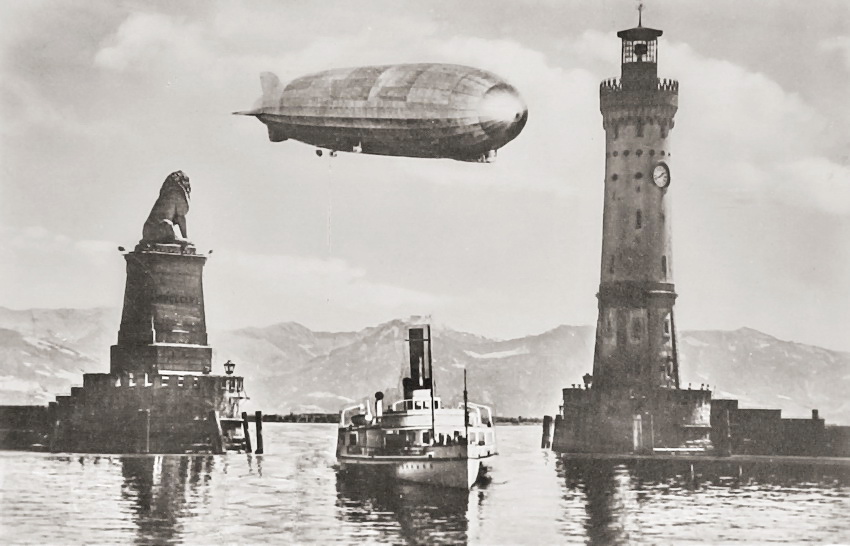Volume 4: Magic in the Age of Steam
by H. Van Dusen
originally published 2663 AUC
From Maria Theresa to the Present
 The Scientific Revolution transformed the practice of magic from an art to a science. We learned to harness magical powers in specific and reproducible ways, then we put those powers to work in our great machines. Anything more complex than a clock is now powered by various forms of magic, and the whole world is better for it.
The Scientific Revolution transformed the practice of magic from an art to a science. We learned to harness magical powers in specific and reproducible ways, then we put those powers to work in our great machines. Anything more complex than a clock is now powered by various forms of magic, and the whole world is better for it.
The important technical change, of course, was the discovery and refinement of phlogiston at the beginning of the twenty-sixth century. Equally important was the final proof of the existence of aether.
These purely Scientific discoveries caused massive changes in society, some of which did not become evident for two or three generations. It is what marks humans apart from dwarves and elves, neither of which race ever learned to use magic to power machines, though we have since taught them that and more.
The Twenty-Sixth Century
This is the heroic age for Science. At the beginning of the century, Scientists were still being persecuted, labeled as charlatans or worse. Despite some tragic losses, Science moved ever forward. At the beginning of the century, aether was still little more than a theory, but in 2647 its existence was formally proved.
Also during the early part of the century, phlogiston was treated as a dangerous substance avoided by all but the foolish and the desperate. By the end of the century, though, it was seen as merely another element in the Magic Table and it was being put to dozens of different uses. Thus did Science lead us out of the ignorance of the Middle Age.
The most important development was indisputably the invention of Steam, which powers most of
The Twenty-Seventh Century
Nota bene: these sections were added by S. Van Dusen, a descendant of the original historian.
The century of the Great Wars, the Wars to End All Wars. The wars began when Professor Queller discovered the note written by the alchemist Arne Saknussemm. Queller and his party were the first to discover the World Beneath, sometimes called the Unterwelt. Although his expedition was wholly innocent, it set off a sequence of events that resulted in the Drow emerging from the Unterwelt to do battle with the Oberwelt (2623-24).
The Prussian War was merely the first skirmish. It was followed by wars in the Balkans, then the so-called Great War, which lasted from 2667 to 2698.
The Twenty-Eighth Century
The end of the Great War ushered in an era of unprecedented peace and prosperity. In this century the Free Folk at last were able to travel to other planets. The full promise of Scientific Magic was realized.
Yet, the century has not been without its difficulties. For the first time, the Lesser Folk demanded full equality. This has largely now been achieved through the agency of the United Peoples General Assembly.
More serious has been the rise of Artisan Magic, sometimes just referred to as the Arts. This is a retrograde movement that rejects Science and seeks a romanticized return to the old days and the old ways. This movement began around 2700 but really got going in the 2710s. It has changed, gone underground, and re-emerged in multiple forms. It is too much to call it a movement, for it has a hundred centers and a thousand heads, but at times disparate currents have come together to present a real threat here and there. Artisan Magic represents a significant alternate route forward for all Free Folk.
Footnotes
- Giles Haversham, Entropy and Dystropy at the Beginning of the Dark Ages: Results from the Fifth Aetheroscopic Research Survey. University of Leeds, 2751 AUC. [return]
- Leo Manutio, “Encore the ‘Mana Wave’ Debate,” Journal of Ancient Magic, Vol 59, Second Series, 2717 AUC. But contra Manutio, see V. Ilardi, “Sense and Nonsense in the Controversy over the so-called Introduction of Mana,” Vierteljahrschrift für Magikforschung, v. 189, pp. 89-152. 2749 AUC. [return]
